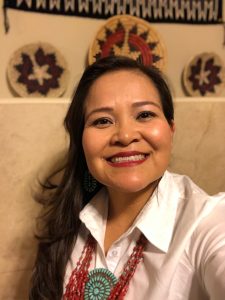The New Mexico State University Climate Change Education Seminar Series, or NMSUCCESS for short is an interdisciplinary series bringing a range of experts to New Mexico State University and venues in Las Cruces to promote informed discussion of the causes and consequences of climate change.
Fall 2021
Wednesday October 20, 2021 Time 7pm

Climate Anxiety, Grief and Hope: Moving from Angst to Action
Speakers: Dr. Jennifer Atkinson
Organizers: NMSUCCESS
Contact: ajenks@nmsu.edu
As our climate crisis deepens, feelings of anxiety, grief, and hopelessness are on the rise. Staying engaged in climate solutions over the long term requires us to avoid emotional burnout; yet when bombarded with so much bad news – mass extinction, dying oceans, displaced communities and burning forests – this is easier said than done. This talk explores the mental health dimensions of climate disruption among students, scientists, activists, and frontline communities, and shares practical strategies for building the emotional resilience to channel despair into meaningful action.
Wednesday November 17, 2021 7pm

Unique Climate Change Impacts on Water Resources of American Indians and Alaska Natives in the U.S
Speakers: Dr. Karletta Chief
Organizers: NMSUCCESS
Contact: ajenks@nmsu.edu
This presentation provides an overview of climate change impacts on tribal water resources and the subsequent cascading effects on livelihoods and cultures of American Indians and Alaska Natives living on tribal lands in the U.S. It first presents a hazards and vulnerability framework for understanding these impacts. Next the presentation will provides context on the framework components including climate, hydrologic, and ecosystem changes (i.e. hazards) and tribe-specific vulnerability factors (socioeconomic, political, infrastructural, environmental, spiritual and cultural), which when combined with hazards lead to impacts. The presentation will finish with regional summaries of impacts around the U.S. Although each tribal community experiences their own impacts because of their individual history, culture, and geographic setting, many of the observed impacts are categorized as impacts on – 1) water supply and management (including water sources and infrastructure), 2) aquatic species important for culture and subsistence, 3) ranching and agriculture particularly from climate extremes (e.g. droughts, floods), 4) tribal sovereignty and rights associated with water resources, fishing, hunting, and gathering, and 5) soil quality (e.g. coastal and, in Alaska, riverine erosion, degradation) prompting tribal relocation.
2021 – 2022 Series
Pacific Islander Climate Change Poetry
Dr. Craig Santos Perez
2020 – 2021 Series
The Promise of Regenerative Agriculture
Biomimicry a New Approach to Agriculture Science
Ray Archuleta
Regenerating the Diversity of Life in Soils – Hope for: Farming, Ranching, Nutrition, Environment, Health and Climate!
David Johnson
Discussion with Dr. Gregory Cajete on Indigenous Perspectives in Science
Dr. Gregory Cajete
Wednesday March 24th 7pm
A Conservation on Waste Reduction – In Celebration of America Recycles Day
Mary Canavan
Jesse Van Maanen
Peter Ibarbo
Thursday November 12st 10am
Knowledge to Outcomes in Global Biodiversity Conservation
Dr. Leah Gerber
Wednesday October 21st 7pm
New Mexico At The Precipice: A conversation with Laura Paskus
Laura Paskus
Wednesday September 30th 7pm
2019 – 2020 Series
On the Competing Risks and Benefits of Geologic CO2 Sequestration
Dr. Brian McPherson
Wednesday March 4, 2020 7:00 – 8:30 pm
Climate Security: Threats and Responses at Home and Abroad
Vice Admiral Lee Gunn, USN (Ret)
Chief Executive Officer of the American Security Project (ASP)
Wednesday February 12, 2020 7:00 – 8:30 pm
Redesigning Desert Agriculture for Climate Change: Biomimicry, Nurse Plant Ecology & Succulent Plants
Dr. Gary Nabhan
University of Arizona
Wednesday January 29, 2020 7:00 – 8:30 pm
Multi-species Justice in the Age of Biological Annihilation & Climate Breakdown
Subhankar Banerjee
Wednesday, November 20, 2019 7:00 – 8:30 pm
The Human Dimension of Disaster Preparedness, Vulnerability, and Resiliency: The Role of the Colleges and Universities
Dr. Jorge Vanegas
Wednesday, November 6, 2019 7:00 – 8:30 pm
New Mexico at the Crossroads: How the State, It’s Biggest City, and NMSU are Addressing Climate Change
Chancellor Arvizu – Chancellor of NMSU
Sarah Cottrell Propst – Secretary of the State Energy, Minerals and Natural Resources Department
Kelsey Rader – Sustainability Officer of Albuquerque
Wednesday October 2, 2019 6:00 – 7:30 pm
Chihuahuan Desert Landscapes in the Uncertain Future
Debra Peters (Lead Research Scientist at Jornada Experimental Range)
Thursday September 12, 2020 7:00 – 8:30 pm
2018-2019 Series
Climate Change, Wildfire, and Megadrought in the Western United States
A. Park Williams
April 3, 2019
Drought, water security, and ecosystem disruption – the SW climate challenge
Jonathan Overpeck
March 6, 2019
Extreme Conservation on a Glacier-less Planet
Joel Berger
February 20, 2019
Barriers to Public Acceptance of Climate Science, Impacts and Solutions
Katharine Hayhoe
February 6, 2019
Environmental Markets: From Sulfur to Carbon to Water and Beyond?
Michael Walsh
November 28, 2018
The 3 S’s of Climate Change: Simple, Serious, and Solvable
Scott Denning
November 7, 2018
Deep Time Insight into Earth’s Future
Isabel Montanez
October 3, 2018
On the Front Lines of Urban Warming
David Hondula
September 19, 2018
A Look ahead for the Southwest: Hotter and More Arid
Gregg Garfin
April 25, 2018
Why are We Concerned about Changing Climate
Dave Dubois
April 17, 2018

